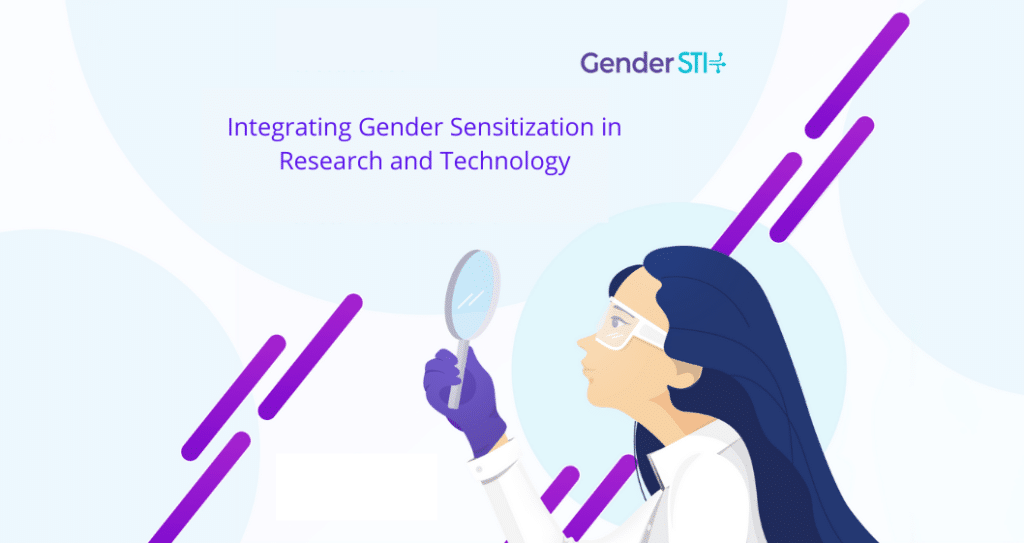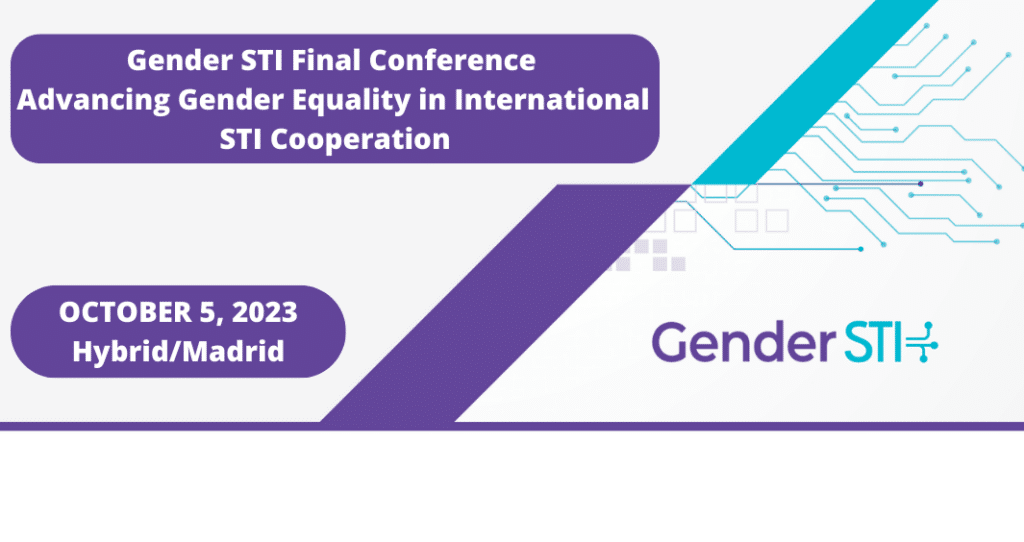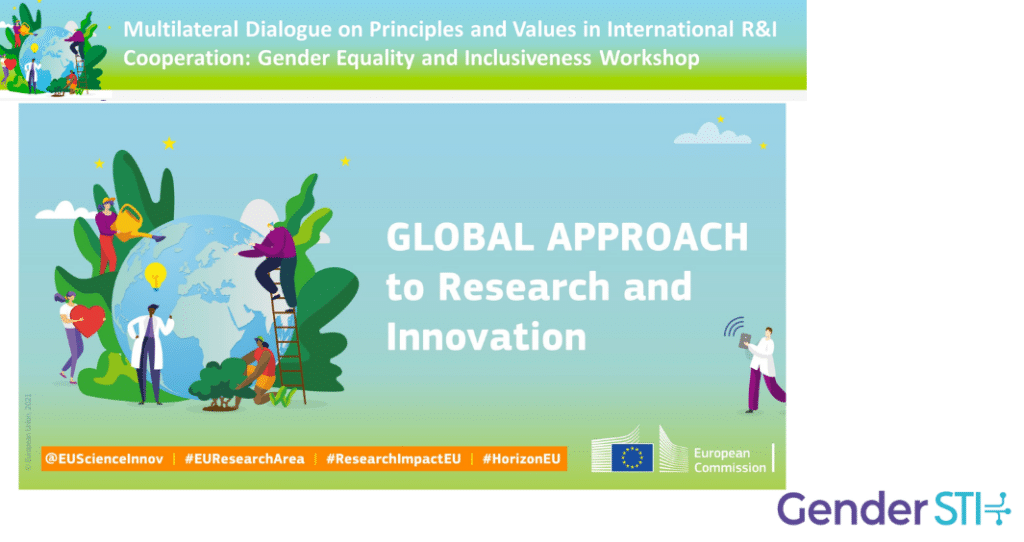In honor of the International Day of Women and Girls in Science, the Gender STI project launched a #WomenInScience campaign to put a spotlight on gender equality in science. We spoke to researchers and experts, both men and women, about the low number of women in science and what we need to do to encourage women and girls to pursue scientific careers.
We are thrilled to present this diverse collection of voices from across the world who are committed to gender equality, and hope that you’ll find it informative and inspiring. Finally, we leave you with one message: Women make science better. That’s a fact. Let’s all work hard to make it gender equality in science a reality.
1. Nina Rilla: "I Want to Encourage All People to Pursue a Career They Feel Passionate About"
Rilla, a senior scientist at VTT Technical Research Centre of Finland, believes diversity and cooperation spur science, technology and innovation. She wants to encourage all people to pursue a career they feel passionate about, whether it’s in science or outside science.
University of São Paulo professor Martucci affirms that addressing the low number of women in science begins with promoting science and technology development in elementary and secondary schools. He also has a message for women and girls: You are very important to science.
When we talk about increasing women in science, Danielle Nadin, science strategy lead at the Canadian Institutes of Health Research – Institute of Gender and Health, reminds us that we need to consider all women. This includes racialized, Indigenous, queer, trans, disabled, neurodivergent, low income and otherwise marginalized women.
4. Isabel Kreiner: "We Need to Create an Equilibrium Between Work and Family Life"
One of the challenges facing women in science is work-life balance. Isabel Kreiner, director of the Research Development Department at Tec de Monterrey, says we have to think of ways to keep women involved in research. One method would be allowing women to return to research after maternity leave or keeping them involved part-time during their leave.
5. Wolfgang Slany: "Women and Girls Are Half of Humanity, and They Deserve Equal Opportunities"
Wolfgang Slany, a professor at the Graz University of Technology and founder of the nonprofit Catrobat, explains that increasing the number of women in science requires a thousand faced approach, with lots of smaller and larger steps.
6. Nawal Aït Ali: "The Lack of Women Researchers Is a Massive Loss for Science and Social Progress"
Instead of encouraging women and girls to work on themselves to gain trust and self-confidence, Nawal Aït Ali, part of the Mission for the Place of Women, says we should put more institutional effort in fixing the system.
7. Janina Onuki: "I Hope That Women and Girls Will Be Inspired by Women Scientists"
Globally, less than 30% of researchers are women. Janina Onuki, professor and dean at the Institute of International Relations at the University of São Paulo, points out that this is due to the lack of conditions and opportunities offered to female researchers.
8. Aarani Mathialagan: "We Need to Create a Culture Where Women Feel Welcome in Science"
While overt gender discrimination in scientific fields may have been largely reduced, long-standing biases and stereotypes persist. Aarani Mathialagan, science communication officer at the Canadian Institutes of Health Research – Institute of Gender and Health, affirms that this can be seen in the gender gap in education and in the women leaving STEM fields at higher rates than men.
9. Silvia de los Ríos Pérez: "Women and Girls Still Need More References in Science That Empower Them"
Having women role models in science is key if we want to increase the number of women in science. Silvia de los Ríos Pérez, researcher and project manager in the LifeSTech research group at the Universidad Politécnica de Madrid, says increasing visibility for women researchers is one way to create more empowering references for women.
10. Vesna Krnjic: "You Can Do Anything in Science If You Believe in Yourself"
Women interested in science need to believe in themselves when pursuing a scientific career. Vesna Krnjic, a researcher at the Graz University of Technology, reminds young women if they’re curious and their heart beats for science, a scientific career is just for them.
11. Anna Ginès i Fabrellas: "Women Are Leaking Through the Cracks of the Scientific Pipeline"
The concept of the “leaky pipeline” is a big issue when talking about gender equality in science and academia. Anna Ginès i Fabrellas, associate professor at ESADE Law School and coordinator of the Equal4Europe project, explains that women face many barriers in their educational journeys and in the workplace, which leads some of them to leave the field.
12. Yvonne Vermonden: "Women in Science Need to Be Offered the Same Opportunities as Men"
To increase the number of women in science, we need to think about the environment that they work in and the opportunities they’re offered. Yvonne Vermonden, senior consultant at Nehem, points out that women need to be as actively encouraged as men.
13. Silvia Kochen: "Fight for Everything You Want in Science and in Life"
It is well known that work-life balance is a big challenge facing women in science. Some women even might feel that they have to choose between following their scientific dreams and having a family. Silvia Kochen, a neuroscience researcher at CONICET and an extraordinary woman in science, has a message for women and girls: Fight for everything you want.
14. Surbhi Sharma: "Let’s Focus on the Women Heroes in Science"
We have to remember our women heroes in science locally and on a global level. Surbhi Sharma, founder of the Euro India Research Centre (EIRC), reminds us that women in science have already created amazing things and that their future is limitless.
15. Matteo Avogaro: "Women and Men Must Fight for Gender Equality in Science Together"
In the fight for equality in science, women and men need to work together to break gender barriers. We need men scientists as allies. One of them is Matteo Avogaro, postdoctoral researcher at the Esade Institute for Labour Studies, who points out that working in an environment where men and women are equally represented is good for research because it allows you to see different perspectives.
16. Sarina Gursch: "You Can Create Much More in Science as a Community"
Having more women in science will not only create a diverse environment, they will also create a vibrant scientific community. Sarina Gursch, a researcher at the Graz University of Technology, reminds us of the strength of community in science.
17. Yolanda Ursa: "We Need a Global Commitment to Overcome Gender Stereotypes in Science"
Globally, there are cultural barriers and gender stereotypes that attribute certain roles and values to women, which is something that happens in scientific careers. Yolanda Ursa, director of innovation management at Inmark Europa and scientific coordinator at Gender STI, says we need an international commitment to overcome these challenges.
18. Catarina Milhazes: "Gender Equality in Science Starts With Changing the Perception Bias"
A critical challenge facing women in science is the perception bias. Catarina Milhazes, an international cooperation and development consultant at the Sociedade Portuguesa de Inovação, explains that tackling bias begins by addressing how we teach brilliance at a young age.
19. Julian Anslinger: "Policy Makers and Universities Must Ensure All People Have Equal Opportunities"
When discussing women in science, we have to analyze the support structures they have. Julian Anslinger, a researcher and member of the CHANGE project, says this is crucial. If key actors don’t create structures and conditions under which all people have equal opportunities, young girls and women will have to create their own support structures.
20. Cecilia Matsumura: "Social Policies Are Tools to Address Gender Inequality in Science"
Throughout history, women have been pushed aside in science and have had to fight for their place. Cecilia Matsumura, a woman scientist from the University of São Paulo, points out that although women’s roles have been changing, recognition of women and opportunities for them have not kept pace with this evolution.
21. Sandhya Venkatesh: "Women and Girls Must Be Given Examples of Women Scientists and Their Impact"
Sandhya Venkatesh, a project manager at the Euro India Research Centre, believes there is much more scope for women to participate in science and research and that it has to be encouraged in all countries equally. Encouraging women and girls to pursue science starts by giving visibility to brilliant women scientists and turning them into role models.
22. Ana Carolina Gomes: "Remember the Brilliant Women Who Cleared the Path for You"
While there is still a long way to go before we achieve gender equality in science, it’s important to remember that change starts with every one of us. Ana Carolina Gomes, a Senior International Project Manager and Consultant at the Sociedade Portuguesa de Inovação, affirms that we have the opportunity to give a voice to diverse individuals in science.



